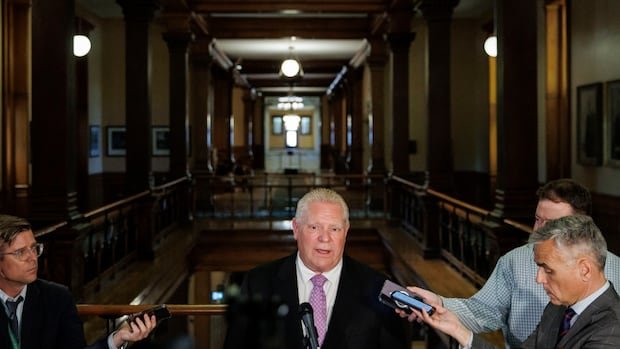Premier Doug Ford, alongside the family of Andrew Cristillo, who tragically lost his life in a fatal collision, made a bold statement, labeling the incident as a deliberate act rather than an accident. The accused, Jaiwin Victor Kirubananthan, faces charges related to dangerous driving causing death, not murder charges. Ford’s personal connection to the case stems from a prior incident involving Kirubananthan colliding with an OPP vehicle carrying the premier.
Legal professionals caution against Ford’s involvement in ongoing criminal cases, citing risks such as potentially prejudicing juries and spreading misinformation. Despite Ford’s tendency to refrain from commenting on court cases, his recent remarks on the Kirubananthan case have raised concerns about consistency in his approach.
In a separate incident, Ford expressed his opinion on a case involving an Ontario resident charged with assaulting a home invader, emphasizing the need for individuals to protect their families. However, legal experts like Shakir Rahim highlight the importance of understanding the full context before making public statements on such matters.
Ford’s history of commenting on criminal cases without complete information has drawn scrutiny, including a past incident involving Umar Zameer’s bail release, where Ford criticized the decision before Zameer was ultimately acquitted. When high-profile figures like Ford comment on legal matters, there is a risk of influencing legal proceedings and public perception, potentially undermining the justice system’s credibility.
While freedom of expression allows for opinions on legal cases, experts like Jennifer Rooke stress the significance of preserving the presumption of innocence. Rahim points out the potential dangers of officials like Ford making premature comments that could impact trials, referencing past cases where similar actions led to mistrials and judicial warnings.
Weisberg, a criminal lawyer, emphasizes the negative implications of public figures like Ford involving themselves in legal cases without comprehensive knowledge. He advocates for a more cautious and policy-driven approach by the premier, focusing on broader implications rather than individual incidents.


